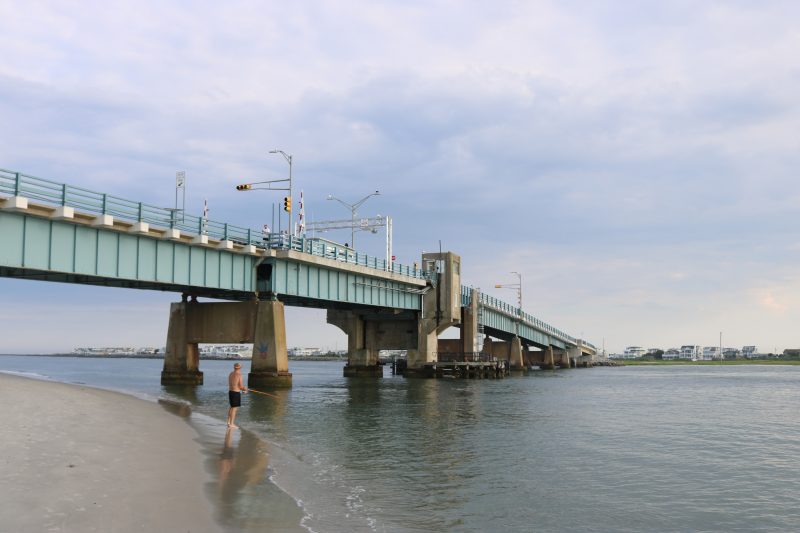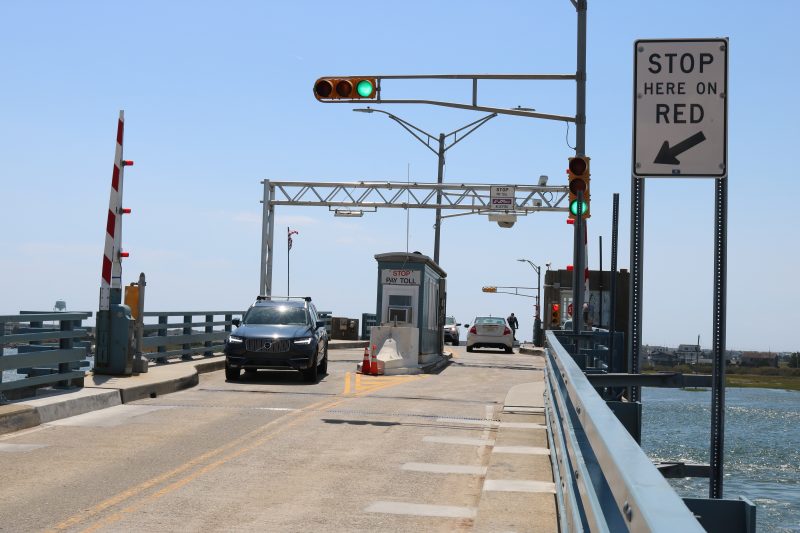Cash tolls are being collected again on the Townsends Inlet Bridge after they were temporarily suspended to help slow the spread of COVID-19.
 By DONALD WITTKOWSKI
By DONALD WITTKOWSKI Cash tolls are being collected again on the Townsends Inlet Bridge after they were temporarily suspended to help slow the spread of COVID-19.
Now that cash payments have resumed, toll collectors are wearing masks and gloves and using hand sanitizer to protect them and the motorists who stop to pay their fares with cash and coins.
Although cash tolls were suspended temporarily, the bridge commission continued to collect fares electronically through the automated E-ZPass system. Motorists not having E-ZPass had a photo taken of their license plate while passing through the toll plaza and a bill was mailed to the vehicle’s registered owner for the unpaid fare.
Overall, cash-paying customers represent about 20 percent of the bridge commission’s traffic. The commission is looking to recover a little more than $32,000 in toll revenue that was not paid when cash payments were suspended.
So far, about $14,500 was paid by motorists within 30 days of receiving their bills. The commission is still owed about $17,600, Coughlin said.
Bills began going out in the mail in the first week of May. The bill is for the regular cash toll rate. No additional administrative fees will be charged if the bill is paid within 30 days.
There has been no strain on the agency’s finances while waiting for cash customers to mail in their payments, Coughlin said in an earlier interview.
Cash tolls are being collected again on the Townsends Inlet Bridge after they were temporarily suspended to help slow the spread of COVID-19.
Now that cash payments have resumed, toll collectors are wearing masks and gloves and using hand sanitizer to protect them and the motorists who stop to pay their fares with cash and coins.
Although cash tolls were suspended temporarily, the bridge commission continued to collect fares electronically through the automated E-ZPass system. Motorists not having E-ZPass had a photo taken of their license plate while passing through the toll plaza and a bill was mailed to the vehicle’s registered owner for the unpaid fare.
Overall, cash-paying customers represent about 20 percent of the bridge commission’s traffic. The commission is looking to recover a little more than $32,000 in toll revenue that was not paid when cash payments were suspended.
So far, about $14,500 was paid by motorists within 30 days of receiving their bills. The commission is still owed about $17,600, Coughlin said.
Bills began going out in the mail in the first week of May. The bill is for the regular cash toll rate. No additional administrative fees will be charged if the bill is paid within 30 days.
There has been no strain on the agency’s finances while waiting for cash customers to mail in their payments, Coughlin said in an earlier interview.